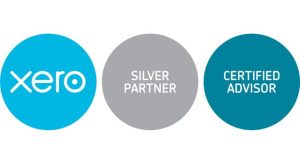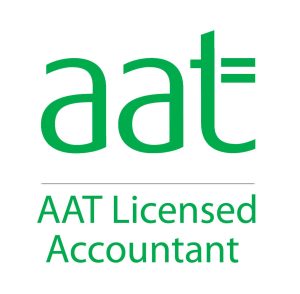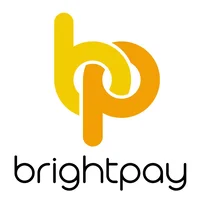The race for the General Election 2024 is in full swing, with campaigns intensifying across the country. But what do the pledges and policies from the leading political parties mean for small business owners? We’ve examined the manifestos and websites of the seven major parties to bring you a comprehensive overview. This article will be updated as new information emerges.
Conservative Party
The Conservative Party has released a Clear Plan manifesto document outlining a ten-point plan to support SMEs:
- Business Rates: Ease the burden for retail, leisure, and hospitality firms by increasing the multiplier on distribution warehouses that support online selling.
- VAT Threshold: Keep the VAT threshold under review.
- Finance Access: Expand Open Finance and explore creating regional mutual banks to improve SME access to finance.
- Employee Threshold: Lift the employee threshold so more businesses qualify as medium-sized with reduced reporting responsibilities.
- Tax Incentives: Retain tax incentives like the Enterprise Investment Scheme and Venture Capital Trusts.
- Digital Invoicing: Promote digital invoicing and improve enforcement of the Prompt Payment Code.
- Basel III: Ensure Basel III capital reporting requirements don’t inhibit lending to SMEs.
- Women Entrepreneurs: Continue the Invest in Women Task Force and the Lilac Review to encourage female and disabled entrepreneurs.
- Invest in Women Fund: Work with the British Business Bank to establish a £250 million Invest in Women Fund.
- SME Procurement: Ensure procurement opportunities focus on SMEs in local economies.
Additional policies include:
- Extending full expensing to include leasing.
- No corporation tax increases.
- Raising public spending on R&D to £22 billion per year.
- Abolishing the main rate of National Insurance for the self-employed by the end of the next parliament.
For more details, visit the Conservative Party website.
Labour Party
Labour’s manifesto is organized into chapters with key policies such as:
- Growth and Skills Levy: Create a Growth and Skills Levy.
- Business Rates: Replace the current business rates system.
- British Business Bank: Reform the British Business Bank to promote regional growth.
- SME Procurement: Review procurement rules to improve SME access to government grants.
- Export Guidance: Enhance guidance and remove barriers to exporting for small businesses.
For more details, visit the Labour Party website.
Liberal Democrats
The Liberal Democrats launched their 2024 manifesto with the “Fair Deal” plan, focusing on economic reinvigoration:
- Business Rates: Abolish business rates and replace them with a Commercial Landowner Levy.
- Job Creation: Facilitate job creation and hiring processes.
- Environmental Duty: Introduce a duty of care for the environment and human rights in business operations.
- EU Relationship: Implement a four-stage roadmap to rebuild the relationship with the EU.
- IR35 and Loan Charge: Review IR35 reforms and end the loan charge.
- Local Banking: Work with major banks to fund a local banking sector for SMEs.
- Late Payments: Enforce the Prompt Payment Code for government agencies, contractors, and large companies.
For more details, visit the Liberal Democrats website.
SNP (Scottish National Party)
The SNP’s manifesto includes:
- EU Rejoining: Aim for Scotland to rejoin the EU and the single market.
- Maternity Pay: Increase maternity pay to one year and promote shared parental leave.
- Veterinary Agreement: Establish an EU veterinary agreement to ease exports and imports.
- Employment Rights: Devolve employment rights to scrap zero-hours contracts and close the gender pay gap.
For more details, visit the SNP website.
Green Party
The Green Party’s manifesto focuses on worker protection and small business support:
- Workers’ Rights: Repeal anti-union legislation and replace it with a Charter of Workers’ Rights.
- Pay Ratio: Implement a maximum 10:1 pay ratio for all organizations.
- Minimum Wage: Increase the minimum wage to £15 an hour, offsetting costs for small businesses by reducing National Insurance payments.
- Equal Employment Rights: Ensure equal rights from day one for all workers, including those in the gig economy.
- Four-Day Week: Move towards a four-day working week.
For more details, visit the Green Party website.
Reform Party
Reform (formerly the Brexit Party) pledges:
- Corporation Tax: Increase the minimum profit threshold on corporation tax to £100,000 and reduce the main rate from 25% to 20%, then to 15% from year five.
- VAT Threshold: Increase the VAT threshold to £150,000.
- Business Rates: Abolish business rates for high street SMEs.
- Online Delivery Tax: Introduce a 4% online delivery tax for large multinationals.
- Employment Laws: Scrap existing employment laws.
For more details, visit the Reform Party website.
Plaid Cymru
Plaid Cymru’s manifesto focuses on supporting Welsh businesses:
- Business Rates: Amend the business rates multiplier to support high street businesses.
- Public Sector Spending: Aim for 75% of Welsh public sector spending to be with local companies.
- Ownership Models: Promote co-operative, employee, and community ownership models.
- Internet Access: Guarantee high-speed internet for every business.
- Apprentice Living Wage: Introduce a living wage for apprentices.
For more details, visit the Plaid Cymru website.
Conclusion
As the General Election 2024 approaches, staying informed about these policies is crucial for small business owners. The proposals from each party could significantly impact your operations, financial planning, and strategic decisions.
For personalized advice and to navigate these potential changes, contact Plymouth Accountancy Hub. Our experts are ready to help your business thrive amidst the evolving political landscape.





